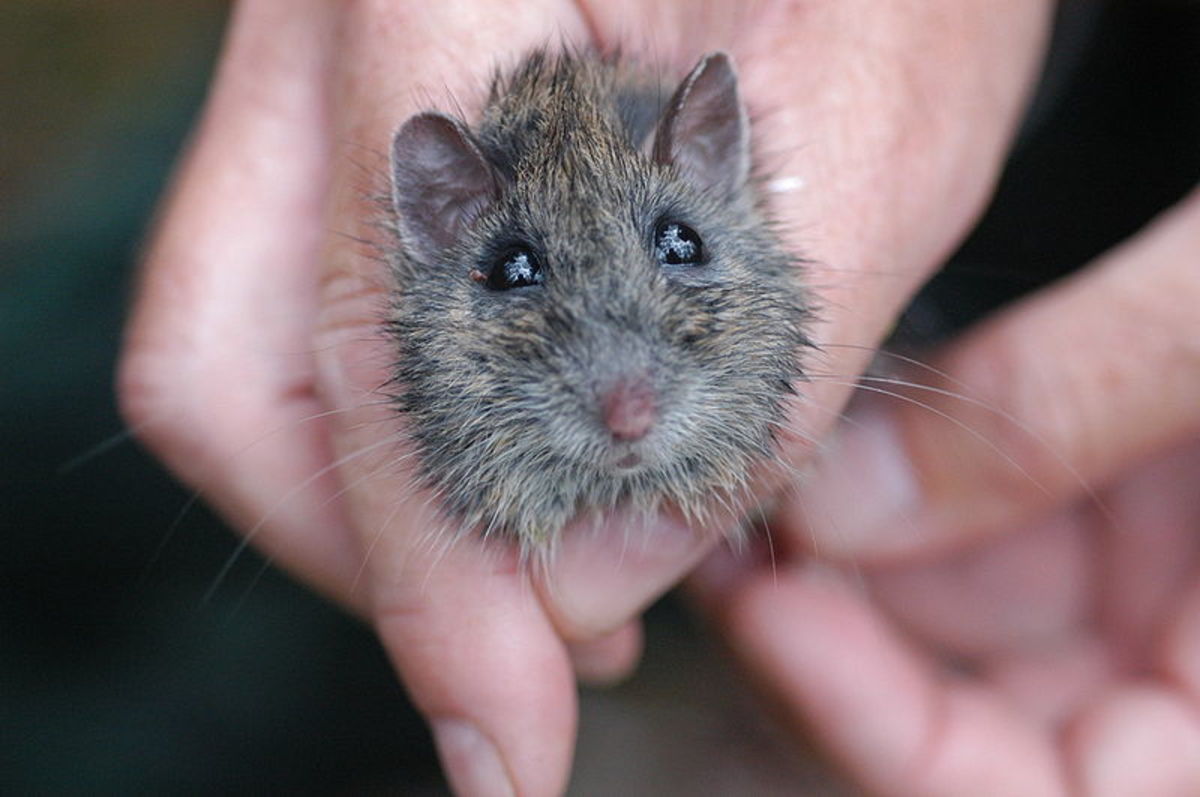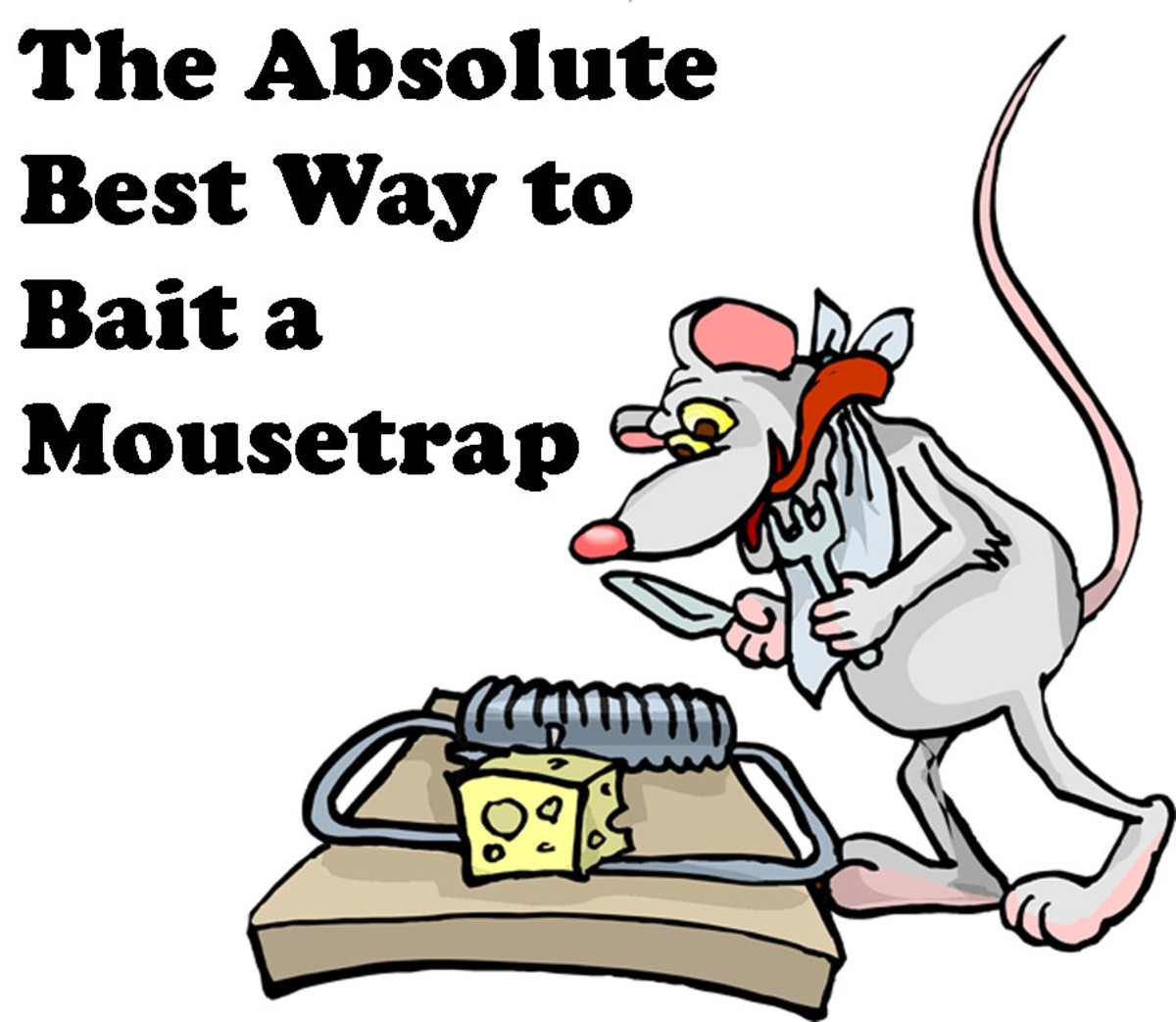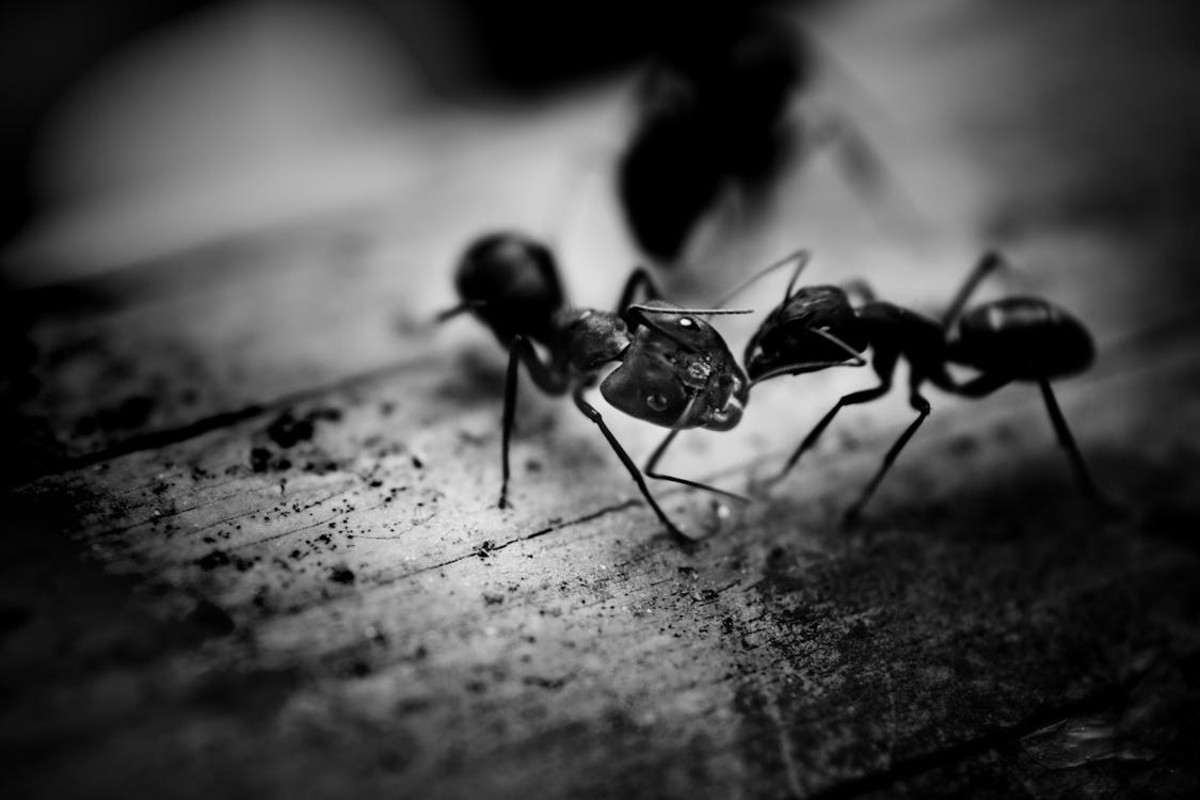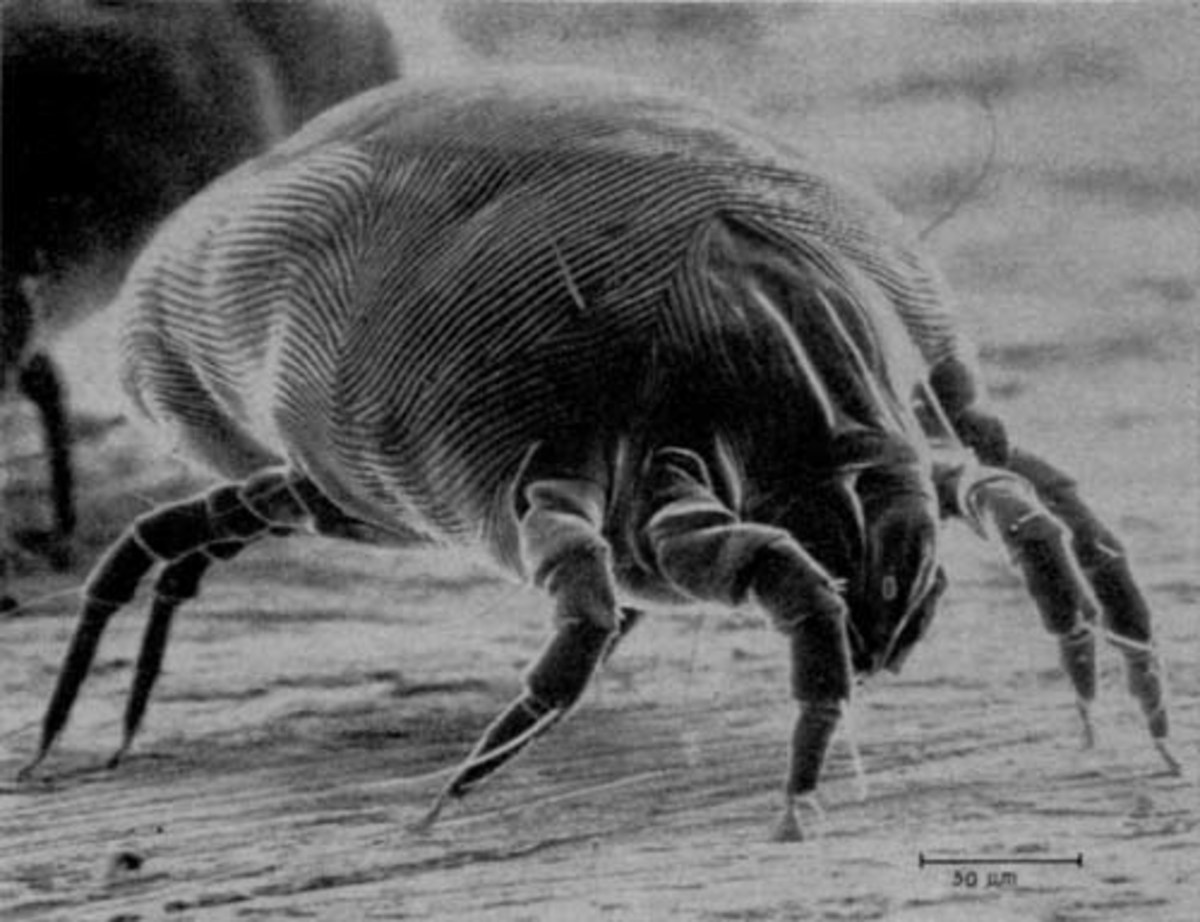- HubPages»
- Home and Garden»
- Cleaning»
- Eliminating Pests
Best Humane Mouse Traps - Quick Kill or No Kill
Humane Mouse Trap- The Differences
There are two types of humane mouse traps, quick- kill and no-kill catch and release traps. I always think of humane traps as the no kill PETA trap, but there are many others.The other are quick kill variety of humane traps, they are are just that, quick; as well as efficient and safe for human handling. It can be confusing when hearing about the two if you are unsure of the double terminology; looking at most humane trap, of course is easily identifiable.
The main theory behind no-kill traps are relocation- setting the mouse free. According to studies I found, getting rid of mice without mouse proofing does not reduce the mouse population in your home.This form of humane mouse removal method increases our humanity’s exposure to over 35 diseases, some fatal. I hope when you are done reading, you think twice about releasing mice or other rodents free outside your home.
Mouse Relocation causes immigration
The Department of Biology at Montana did a study in March 2003 titled," Emerging Infectious Diseases," the study concluded that removing mice from a dwelling, whether eliminated by fatal trap or humane no kill trap and then relocated did not reduce their numbers in any building. In addition, relocating live mice to the outdoors will, in fact, cause a steady flow of rodent immigration into other structures.
Experts say it's common for house mice to nest within 35 feet of a food source; but outdoor mice will travel quite far to immigrate into an inviting structure. In addition, the study showed that tagged mice caught in a humane mouse trap, then relocated ten miles away from the originating building, can often find their way back. Wow.
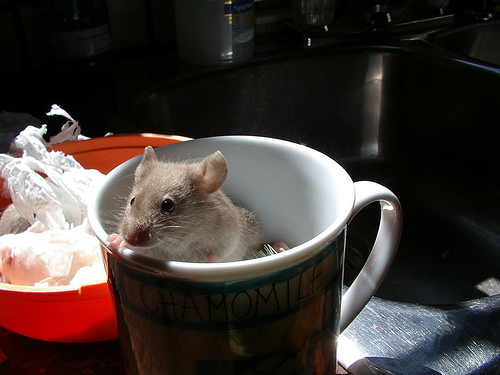
Rodents have Rights
The controversial non-profit organization, People for the Ethical Treatment of Animals (PETA), posted on their blog "Living in Harmony with Mice," and "The Secret Lives of Mice." Now, I understand and sympathize with the driving force behind behind PETA, as I abhor cruelty to animals too, but I am confused by PETA. With all the diseases that rodents transmit, as well as the damage they can cause, including house fires and death, I fail to understand why we need to live in harmony with wild rodents. PETA has fill in the blank articles with using rats instead if mice and I noticed their articles often contradict each other.
Maybe I am just plain ignorant of wild rodents rights as opposed to our own human survival and health.
At PETA's main site, they state: "Mice and rats are often forced into human environments when their natural habitats are lost to development. We owe it to these gentle social animals to do all that we can to peacefully co-exist with them."
Hmm, mice in my silverware drawer, possibly contaminated infectious mice droppings in my food pantry, dead mice in the horses feed bin; no, no, no, I can't or won't live peacefully in harmony with mice in my house or barn.
Rodents are Hazardous to Humans
Catching mice and then setting them free - I can't do that either, what if the mouse gets in some random structure after I dump if off and it invades someplace else? Mice will seek out a warm home. It's proven mice travel ten or more miles to invade the nearest source. How far would one need to drive to release the mouse, free of injury, to a responsible location? PETA's solution is just not realistic to me. Would the lone house mouse survive in the wild after all that work? Do we spend a week trying to collect them all so we can set the mice family free all at once? Without grossing people out, I left a link above when I mentioned a human fatality, if I caused that when I set the rodent free I'd feel horrible.
In PETA's article "Living in Harmony with Mice," it fails to state that mice are attracted to structures once they detect open holes with heat escaping. Are the mice leaving the cold outdoors because they are looking for warmth? I admit, humans may have built over the mice habitat, but it seems to me they prefer the warm houses over their natural habitat as well.
Mice deserve our respect
I agree with PETA that cruelty to animals is wrong, I'm just amazed they don't give all the facts when promoting their agenda. Is PETA aware that sharing your home with one couple of undisturbed happy mice can breed 4500 mice in a year?
- Mice breed at 30 days
- Gestation is 19 days
- 4 to 8 pups a litter
- Litters6 to 8 times a year
- One couple= 42 pups a year 4500 potential mice one year
In the other PETA post, "The Secret Lives of Mice", ".. Mice, like humans, enjoy a nice warm home." There are contradictions in both articles, one really needs to read both of PETA's articles, to notice this as well as see the omission of facts.
PETA's writer further goes on to state" fascinating tidbits" that we humans should respect, "Mice are clean and fastidious animals. They designate separate areas of their homes to use as dining rooms and bathrooms. Yeah, my silverware drawer is the mice bathroom and my cereal box the mouse morgue.
Mice have emotions
I agree with PETA when they say mice are smart. I will even go so far as to say they might have emotions or care for one another.The youtube video video above shows a mouse trying to “help” another mouse that is stuck in a snap trap. I use the term “help” lightly, as I have also seen mice eat their own.
- Mice and rats chew wires which cause fires that kill people
- Mice transmit 35 diseases, some fatal
- Mice cause allergies
- Mice cause expensive property damage
- A gene has been discovered linked to mice that cause breast cancer
- Mice are prolific reproducers-they will probably never become extinct
I'm not sure if I could not live with myself if I learned, that a mouse I set free, caused a person to get sick or succumb to one of the 35 known diseases transmitted by rodents, or was bit to death, or caused a house fire. Can you? It just seem kinda irresponsible to me.
30 to 40% of Breast Cancer caused by Mice?
Studies show that 30 to 40 percent of breast cancer may be attributed to mice via an infectious virus. Discovered in 1936, the Mouse Mammary Tumor Virus (MMTV) is similar to Human Mammary Tumor Virus (HMTV) by a whopping rate 98%, it is believed to be the same virus. Scientist say that if this notion is correct that means almost one third to one half of breast cancer can be avoided by a vaccine. How is it transmitted? This is what scientists need to know. Studies have shown the areas with high infection rate of mice carrying the MMTV correlates to similair numbers in women positive for HMTV.
The best mouse trap
Maybe you know these things I shared today, maybe you didn't. Maybe you knew, but never thought it all the way through; I admit, that was me. I preferred setting mice free, until one day I got bit trying to set a mouse free from a glue trap. Then I wised up.
I prefer the humane quick kill trap, as the mice do not suffer, it all ends for them within 3 to 5 seconds depending on the model of humane quick kill mouse trap . Even the best mouse trap can't help you with your mouse control problem unless you stick to a three step processs: Prevent, control, find your best mouse trap and do it all consistently, regularly.
How did this post affect you?
Did reading this change your mind about setting rodents free?
Resources
- UCSB Press Release: "HUMAN BREAST CANCER LINKED TO INFECTED MICE SAYS STUDY"
HUMAN BREAST CANCER LINKED TO INFECTED MICE SAYS STUDY - Maine Camps: Opening Camp? Watch Out for Mice! | Maine Senior Guide
Maine has had its first case of hantavirus, which causes a potentially deadly respiratory disease. Mice carry hantavirus, spuse care in opening your camp this spring. - Living in Harmony With Rats | PETA.org
Each year, millions of animals suffer horrific deaths because some consider them a nuisance. Find out how to end the cruelty toward wildlife. - House fires blamed on rodents | Bay of Plenty News | Local News in Bay of Plenty
Rats are believed to be responsible for a fire that destroyed the home of a retired police officer yesterday. - The Secret Lives of Mice | PETA.org
As the nights get chilly, the thought of passing the evenings with friends and family in a nice, warm house sounds delightful … to mice...... - Living in Harmony with House Mice | PETA.org
Each year, millions of animals suffer horrific deaths because some consider them a nuisance. Find out how to end the cruelty toward wildlife. - PETA sue Ortho Max Mouse Trap
PETA sue Ortho Max Mouse Trap - Emerging Diseases
Study by CDC


